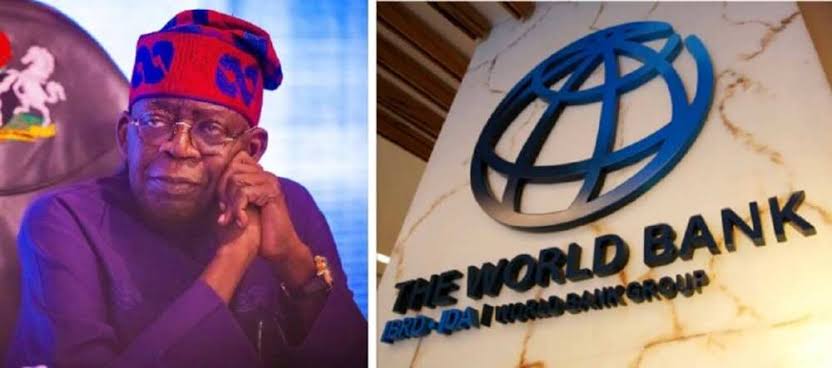According to news sources, the World Bank has approved three new projects for Nigeria, totalling $1.57 billion in financing.
According to a statement released on Monday by World Bank Nigeria, this new funding will support the country in addressing governance challenges in education and healthcare, improving primary healthcare services, and increasing resilience to climate change through enhanced dam safety and irrigation infrastructure.
The approval, made on September 26, 2024, highlights the World Bank’s commitment to strengthening Nigeria’s human capital and building resilience in the face of climate threats.
This financing package, which includes $1.5 billion loan and $70 million grant, is part of broader efforts to improve key sectors such as education, healthcare, and water management, while also tackling poverty and boosting productivity.
Note that So far, Nigeria has secured a total of $6.52 billion in new financing from the World Bank under the administration of President Bola Tinubu amid concerns over the country’s rising external debt servicing costs.
Earlier this year, the World Bank recently announced the approval of two loan projects aimed at bolstering Nigeria’s economic stability and supporting its vulnerable populations.
It was reported that Nigeria received only about 16% of the total loans earlier approved by the World Bank under Tinubu.
That is, out of $4.95 billion earlier approved loans, only $774.99 million had been disbursed as of July 31, 2024, raising concerns about the pace of project implementation and fund utilization.
Breakdown of projects
The $1.57 billion funding is divided across three major projects.
The first, the HOPE-GOV program, will receive $500 million to improve governance in the education and health sectors. This program is designed to address underlying issues in financial and human resource management that have hindered service delivery.
The aim is to enhance transparency and accountability while ensuring that critical services such as basic education and primary healthcare reach the most vulnerable populations.
Another $570 million is earmarked for the Primary Healthcare Provision Strengthening Program (HOPE-PHC).
This initiative is pivotal in improving Nigeria’s healthcare system, particularly for women, children, and adolescents. The program focuses on reducing maternal and under-five mortality rates and enhancing the resilience of Nigeria’s health infrastructure.
Under HOPE-PHC, the project will provide quality reproductive, maternal, newborn, child, and adolescent health services. A total of 40 million Nigerians, especially those in underserved areas, are expected to benefit from the program.
The initiative is funded by a $500 million International Development Association (IDA) credit, along with an additional $70 million grant from the Global Financing Facility (GFF), which includes contributions from the UK Foreign, Commonwealth & Development Office (FCDO) and the Children’s Investment Foundation Fund (CIFF).
These funds will help bridge gaps in primary healthcare financing, while also supporting sustainable financing for family planning.
The remaining $500 million will be allocated to the Sustainable Power and Irrigation for Nigeria Project (SPIN), which aims to protect Nigeria from climate-induced challenges such as floods and droughts.
Through enhanced dam safety measures, improved water resource management, and the expansion of irrigation services, the SPIN program will benefit around 950,000 people, including farmers and livestock breeders.
In the statement, Dr Ndiamé Diop, World Bank Country Director for Nigeria, emphasized that investing in the health and education of Nigerians is crucial for improving future employment opportunities, productivity, and reducing poverty.
Related articles


